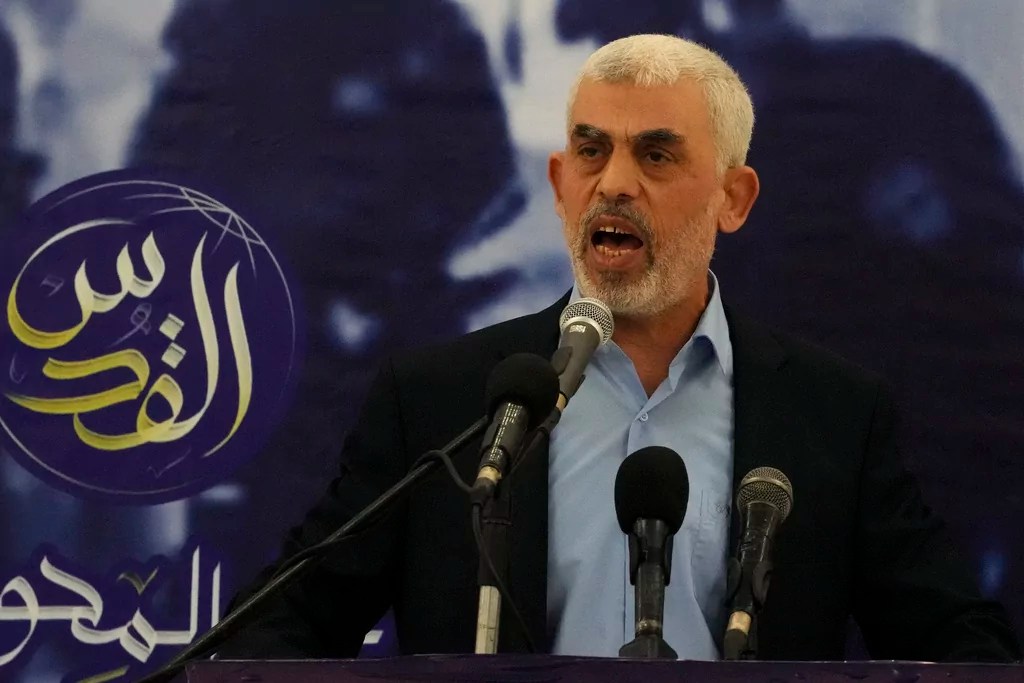


Despite killing their most sought-after Hamas leader, Yahya Sinwar, Israel’s military operations across the region, as well as a looming wider conflict with Iran, remain.
In Gaza, after a year of conflict that has resulted in the deaths of tens of thousands and the displacement of nearly the entire population, Israel’s war could finally be coming to an end with the death of Sinwar, a major psychological victory for the Israelis.
“While this is not the end of the war in Gaza,” Prime Minister Benjamin Netanyahu said on Thursday following the confirmation of Sinwar’s killing, “it’s the beginning of the end.”
Sinwar was the mastermind behind Hamas’s Oct. 7, 2023, terrorist attack in southern Israel that killed roughly 1,200 people, and the attackers kidnapped about 250 others. He spent years meticulously planning the operation, going as far as to limit skirmishes with Israeli forces that could diminish their stockpiles or allow the Israelis to uncover their true intentions.
Israeli leaders were quick to celebrate Sinwar’s death, but it did not distract them from Iran and its proxies, primarily Hezbollah.
“I also have a message of hope to the peoples of the region: The axis of terror that was built by Iran is collapsing before our eyes,” Netanyahu said. “The reign of terror that the Iranian regime has imposed on its own people and on the peoples of Iraq, Syria, Lebanon, and Yemen — this too will come to an end.”
Israel has spent more than two weeks strategically waiting to retaliate against Iran for its Oct. 1 missile barrage fired from Iranian territory into Israel, though it’s unclear when that will take place and what exactly it could look like.
The Biden administration is coordinating with Israel over how to retaliate, and the United States is hoping to see a proportional response that does not incur another Iranian attack. The U.S. deployed an advanced air defense system to Israel and roughly 100 troops to operate it this week to defend against a potential Iranian counterattack.
“We’ve had very constructive communications with the Israelis about how they’re thinking about responding to the attack on October 1st. Those conversations will continue,” U.S. national security adviser Jake Sullivan said. “I can’t speculate as to the psychology of the prime minister based on what happened today. What I can say is that the logic of deterrence, the logic of a response to a salvo of 200 ballistic missiles — nothing in the Middle East is unrelated, but that is a distinct logic from the killing of Sinwar today.”
If Israel hits Iranian military targets, the main question will be about the scope of the attack, Daniel Byman, a senior fellow at the Center for Strategic and International Studies, told the Washington Examiner. The main thing to watch, he said, is whether it will “put pressure on Iran to respond” or whether the country will have the position that “we hit Israel hard, stand by our accomplishment and don’t feel the need to respond at this point. The big question will be, is this escalatory?”
More hawkish Israeli officials have called on Israel to target Iran’s nuclear and/or oil facilities, though both would likely be viewed as escalatory by Iran. On Thursday, Hossein Salami, the commander of Iran’s Revolutionary Guards, warned Israel that it would “painfully” respond to any Israeli attack, according to Iranian media.
Israeli forces have also escalated their operations against Hezbollah, which is based in southern Lebanon, and the military has been carrying out cross-border attacks since last October after Hamas’s attack.
The Israel Defense Forces have devastated Hezbollah’s senior ranks, but Hezbollah continues to pose a threat to Israelis.
CLICK HERE TO READ MORE FROM THE WASHINGTON EXAMINER
Hamas and Hezbollah “still have the ability to act and fight,” Alex Plitsas, a nonresident senior fellow at the Atlantic Council, told the Washington Examiner. “We’re still seeing rockets and missile launch. That hasn’t changed. It’s been significantly reduced. But what we’ve seen now is chaos and disarray, because the command and control functions that each group would perform have been severely impacted as a result of its decapitation strikes against the leaderships of both groups.”
Earlier this week, a Hezbollah drone bypassed Israel’s air defense capabilities and hit a military base, killing a handful of Israeli soldiers and injuring dozens more. The IDF announced on Friday that it called up an additional brigade of reserve troops specifically for operations in the north.
